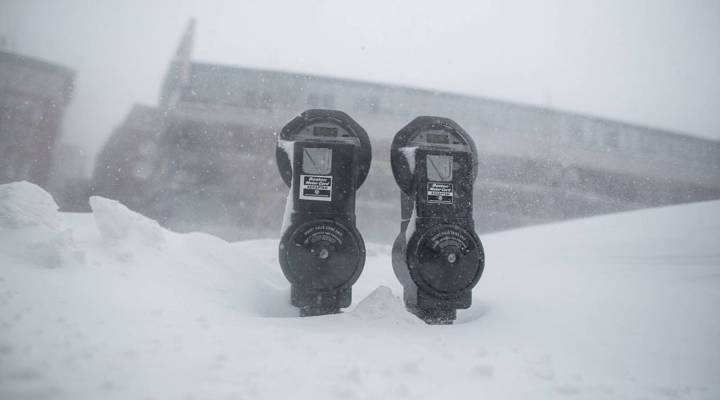
Parking tickets are bankrupting Chicago residents

In Chicago, debt from unpaid parking tickets and traffic violations is prompting an increasing number of bankruptcies. ProPublica Illinois recently analyzed data about Chicago’s ticketing system to learn about the burden it creates for residents and published an investigation. Melissa Sanchez, one of the reporters on the investigation, spoke with Marketplace reporter Tracey Samuelson about the findings. The following is an edited transcript of their conversation.
Tracey Samuelson: So, Melissa, your data suggests these fines go disproportionately to poor and minority residents. Why is that?
Melissa Sanchez: Basically it’s because fines accumulate extra penalties when they’re not paid on time. I can get a ticket for $75 but if I don’t pay it immediately — if I can’t afford to pay it because I’m making these choices between buying my kids winter boots or paying the utility bill — I allow that debt to double, which is what happens in the city of Chicago. And then if more time passes and I still don’t pay it, the city tacks on a 22 percent collection fee. So you’re talking closer to $200 at that point.
Samuelson: So what happens if you can’t pay the debt?
Sanchez: If you don’t pay your parking tickets and you accumulate 10 unpaid parking tickets, then you can lose your license in Illinois. More immediately, if you accumulate just two tickets that end up unpaid for a given amount of time, then the city can put your car on the boot list, which means that it can get this metal clamp installed that prevents you from moving it until you pay a significant payment toward your debt and other fees to get that removed.
Samuelson: Right. And so if you take away someone’s license or you take away their vehicle, obviously that makes it harder for them to work and harder for them to repay this debt.
Sanchez: Exactly. And our data suggests that with a license suspension in particular, low-income blacks in all of Illinois are the ones who are paying the disproportionate share. They’re the ones who are losing their licenses the most.
Samuelson: So how does Chicago compare to other cities? What’s fueling this?
Sanchez: There’s a few reasons. One of the big ones is that there’s no statute of limitations in Illinois for ticket debt. In New York and Los Angeles, there’s an eight year statute of limitation in New York and five years in L.A. And so the amount of debt that’s on the books in those cities is significantly lower. In Chicago, the city says that drivers owe about $1.5 billion in debt. In L.A., it’s $20-some million and New York, it’s a couple hundred million. And these are bigger cities. And Chicago is just very aggressive in its ticketing in general and this is part of a national trend of cities that are desperate to bring in some kinds of revenue, afraid of you know raising property taxes or whatever. And so they go after fines and fees to try to make up the difference and so the city makes more than $200 million in tickets, fines and fees, which is a pretty significant chunk of change.
| California considers reducing traffic fines for low-income drivers |
| Chart of the day: Personal debt keeps growing |
There’s a lot happening in the world. Through it all, Marketplace is here for you.
You rely on Marketplace to break down the world’s events and tell you how it affects you in a fact-based, approachable way. We rely on your financial support to keep making that possible.
Your donation today powers the independent journalism that you rely on. For just $5/month, you can help sustain Marketplace so we can keep reporting on the things that matter to you.


















